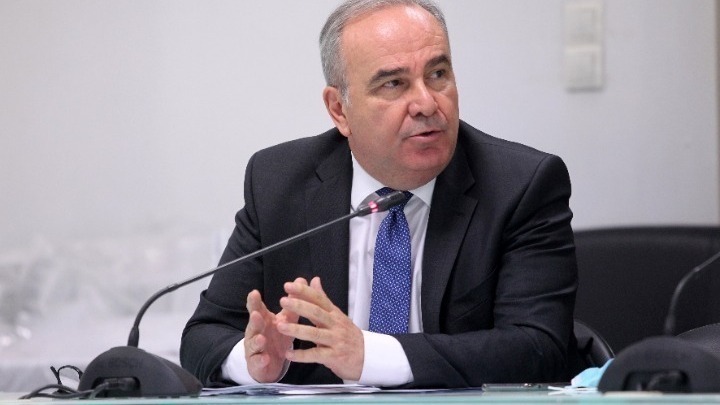Papathanasis submits proposed revisions to the 'Greece 2.0' Recovery and Resilience Plan to the European Commission

The proposal for revising the National Recovery and Resilience Plan "Greece 2.0" was submitted on Thursday to the European Commission, based on a decision by Alternate National Economy and Finance Minister Nikos Papathanasis.
According to an announcement, the focus of the revision is to ensure the full and effective use of all the resources available to Greece from the Recovery and Resilience Facility (RFF).
The main orientations of the review proposal are as follows: There is no reduction in the financing of the Greek plan and an increase in the budgets of actions for which there is high demand. This includes the adjustment of budgets for actions or the transfer of actions to other financial instruments for objective technical/management reasons.
Projects related to safety and the upgrading of citizens' mobility are being added to the "Greece 2.0" plan, such as the integrated upgrade of the safety infrastructure of the 10 largest railway tunnels of the Hellenic Railways Organisation using smart systems, the creation of smart crossings in schools and the development of autonomous smart lighting networks on roads under the supervision of the 13 regions of the country, as well as the supply of 175 additional electric buses in Athens and Thessaloniki.
In order to expand the digitisation of education, additional interactive learning systems are being added to the country's schools and the digital school is being expanded. Digital services are also being strengthened in the public health sector with a project proposal to expand the digital infrastructure of the health system to facilitate and simplify daily procedures. In addition, the implementation of the Unified Digital Map is being expanded, with the addition of the system for recording arbitrary construction through satellites and drones.

















































































